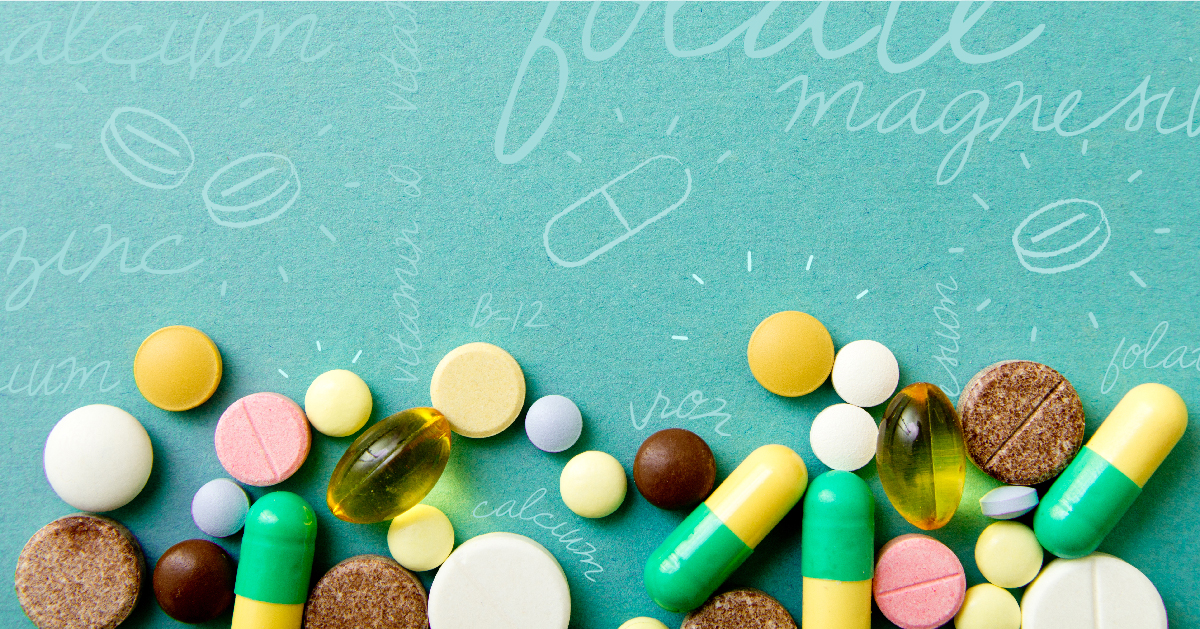Vitamin deficiencies are commonly linked to chronic diseases, and supplementation may help. Even a complete diet may not be giving you the nutrients you need, when you need them. That’s where multivitamins come in. For starters, a daily multivitamin can help provide a good foundation for your health. It can also protect you when you’re experiencing stress, sleeping poorly, or not getting regular exercise. Here are seven ingredients your multivitamin should have, no matter what brand you choose:
1. Vitamin D
Vitamin D helps our bodies absorb calcium, which is important for bone health. Not getting enough of this vitamin can increase your likelihood of getting sick, your chances of bone and back pain, bone and hair loss. Food that contains vitamin D: fatty fish, egg yolks, fortified foods like milk, juice, and cereal.
2.Magnesium
Magnesium is an essential nutrient, which means that we must get it from food or supplements. Magnesium is best known for being important to our bone health and energy production. However, magnesium may have more benefits than that. This mineral can also: calm our nervous system and reduce stress after 90 days, ease sleep problems, regulate muscle and nerve function, balance blood sugar levels, make protein, bone, and even DNA. Food that contains magnesium: pumpkin, spinach, artichoke, soybeans, beans, tofu, brown rice, or nuts.
3. Calcium
Over 40 percent of the U.S. population doesn’t get enough calcium from their diet. This means those people aren’t getting the mineral they need for strong bones and teeth. Women in particular start losing bone density earlier and getting enough calcium from the start is the best nutritional defense against this loss. Food that contains calcium: fortified cereals, milk, cheese and yogurt, salty fish, broccoli and kale, nuts and nut butters, beans and lentils.
4. Zinc
Zinc supports our immune system and helps our body use carbohydrates, protein, and fat for energy. It also aids in wound healing. Food that contains zinc: oysters, grass-fed beef, pumpkin seeds, spinach, organ meats, tahini, sardines, brown rice, wheat germ, tempeh.
5. Iron
Some of the benefits of iron include: increased energy, better brain function, healthy red blood cells. Those who eat red meats typically get enough iron, but certain circumstances like having your menstrual cycle, going through puberty, and being pregnant may increase the amount of iron you need. This is because iron is essential during times of rapid growth and development. Food that contains iron: shellfish, spinach, liver and other organ meats, legumes, red meat, pumpkin seeds, quinoa, turkey, broccoli, tofu, dark chocolate, fish.
6.Folate
Folate (or folic acid) is best known for aiding in fetus development and preventing birth defects. But if you’re growing out your nails, fighting depression, or looking to combat inflammation, this ingredient is important, too. Food that contains folate: dark leafy greens, avocado, beans, citrus.
7. Vitamin B-12
The B-vitamin complex is like a factory made up of eight diligent workers who band together to create and sustain our body’s energy supply by breaking down the micronutrients we consume (fats, proteins, carbs). Vitamin B-12 works to keep the body’s nerve and blood cells healthy and helps make DNA, the genetic material in all cells. Vegan or vegetarians are prone to vitamin B-12 deficiency because most food sources are animal-based like meat, poultry, fish, and eggs.

Comment here